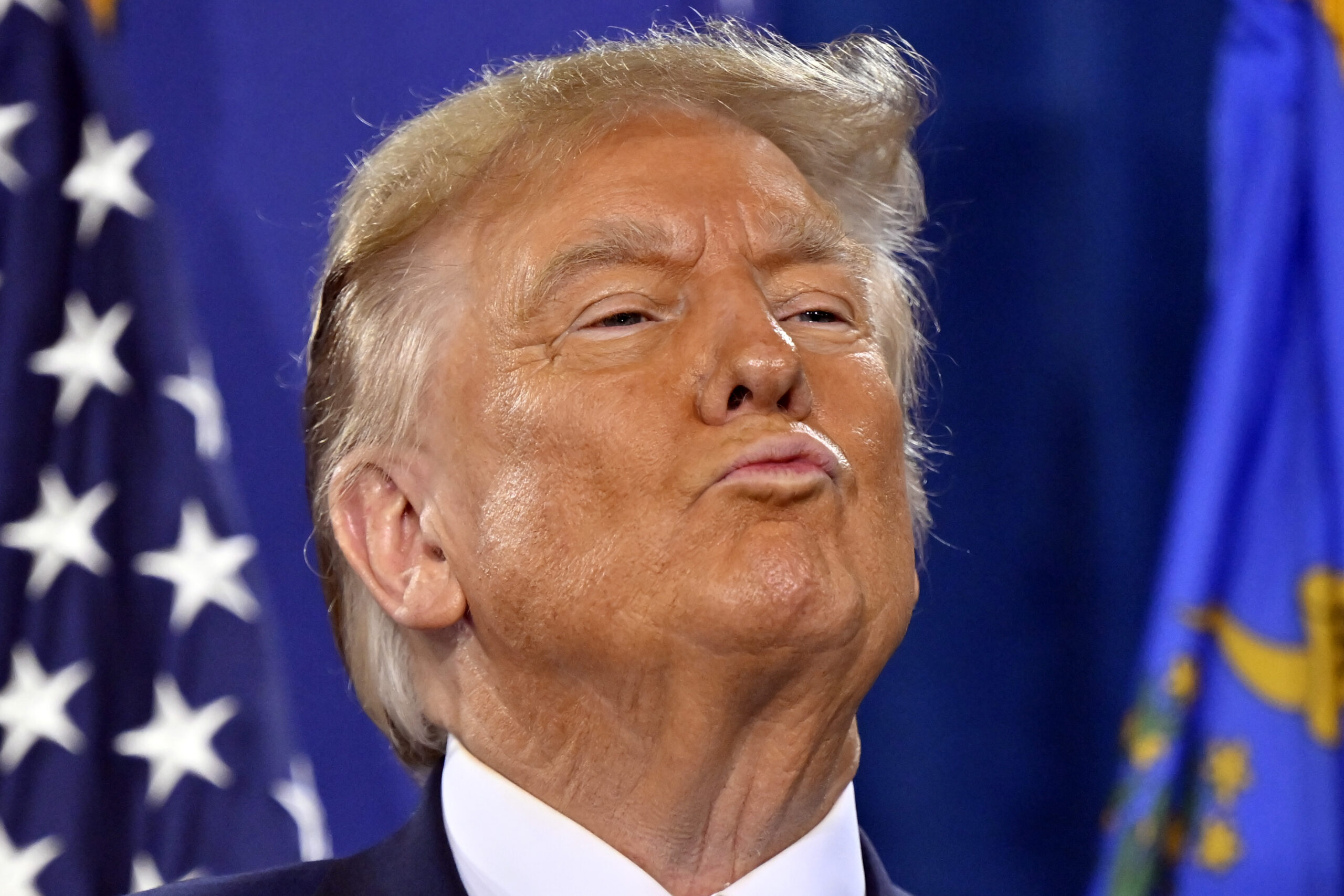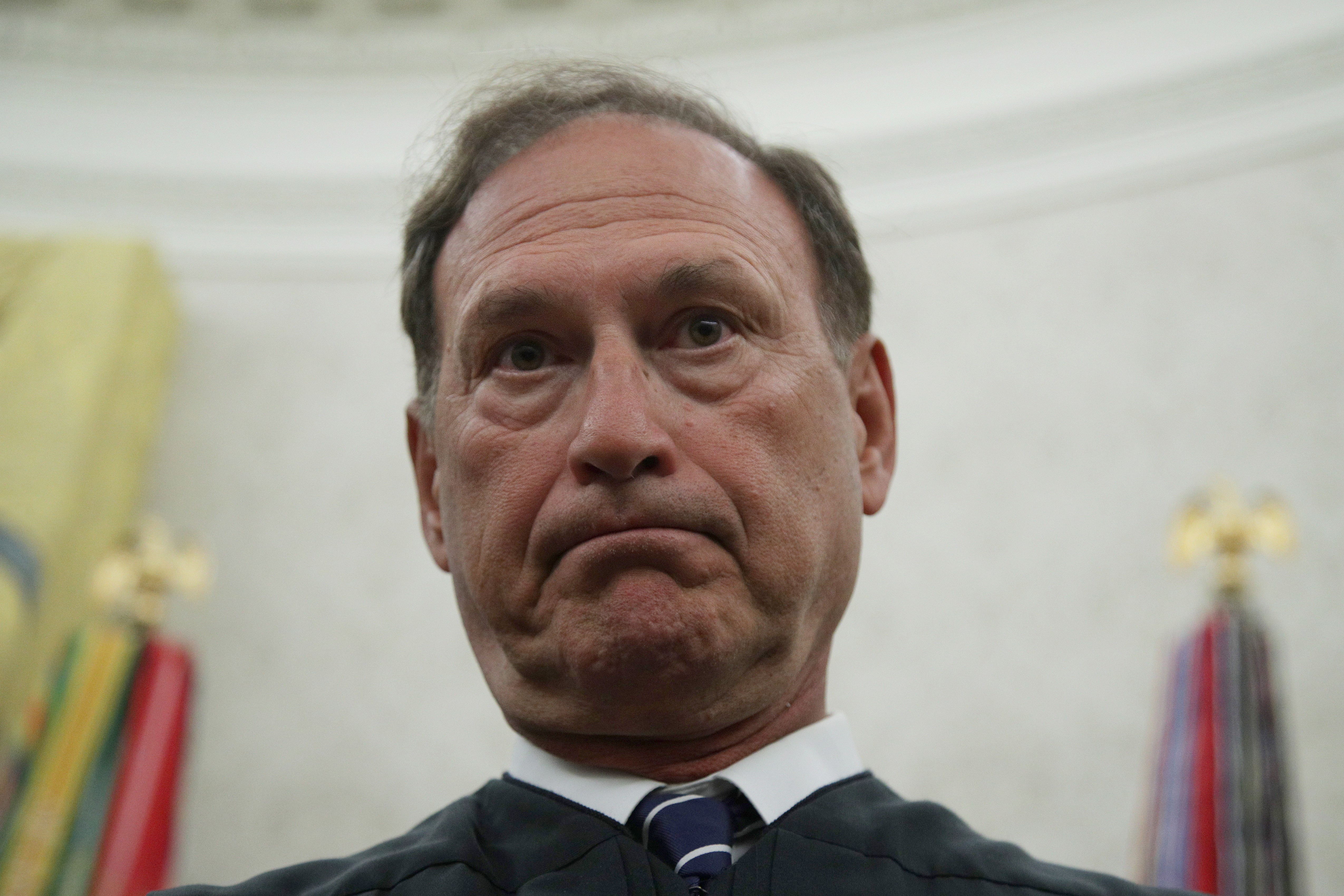(Photo by David Becker/Getty Images)
This morning, the Supreme Court set fire to the case against Donald Trump for plotting a coup to stay in power. He will never be tried for his crimes. And if reelected, he will unleash a wave of retribution safe in the knowledge that he can never be prosecuted for “official” acts.
Opting to go out in a giant blaze of lawlessness, SCOTUS saved the Trump immunity decision for last. While effecting indignation at the suggestion that they were placing the president above the law, they created out of whole cloth an expansive doctrine of presidential immunity covering not only official acts, but conduct inside some vague “outer perimeter” of official acts.
“Such an immunity is required to safeguard the independence and effective functioning of the Executive Branch, and to enable the President to carry out his constitutional duties without undue caution,” they assure us, as if what is troubling the Republic is a lack of decisive action by its leaders, rather than a president who tried to carry out an actual coup.
The majority bought every cockamamie theory put forth by Trump’s lawyers, up to and including the idea that Trump’s official acts can’t be presented as evidence of his intent. So, leaning on the Justice Department to falsely claim that it was investigating electoral fraud is not only beyond prosecution, but cannot be mentioned in court as part of a wider plot to stay in power. Pressuring Pence to accept the fake electoral certificates is only presumptively immune, so, have fun arguing about that for eleventy-seven years, until the septuagenarian defendant either ends the case from the Oval Office, dies, or forces the Supreme Court to bail him out again. Trump’s tweets and exhortations to his followers to “Be there, will be wild!” require similar briefing. Was he speaking as a candidate, or as a president? And more to the point, how long can he drag out the debate on this topic so as to avoid ever having to answer for his crimes?
The only case remotely on-point is Nixon v. Fitzgerald, in which the former president was immunized from civil suit based on his official duties. The Court’s conservatives have decided to hold hands and pretend as one to be confused about the difference between civil and criminal cases, insisting that, if citizens are barred from suing the president, prosecutors must a fortiari be barred from prosecuting presidents for actual crimes.
“Although the President might be exposed to fewer criminal prosecutions than the range of civil damages suits that might be brought by various plaintiffs, the threat of trial, judgment, and imprisonment is a far greater deterrent,” they insist. “Potential criminal liability, and the peculiar public opprobrium that attaches to criminal proceedings, are plainly more likely to distort Presidential decisionmaking than the potential payment of civil damages.”
This is not only a-historical but blatantly unconstitutional, as Justice Sotomayor points out in her dissent.
The majority ignores, however, that the Impeachment Judgment Clause cuts against its own position. That Clause presumes the availability of criminal process as a backstop by establishing that an official impeached and convicted by the Senate “shall nevertheless be liable and subject to Indictment, Trial, Judgment and Punishment, according to Law.” Art. I, §3, cl. 7 (emphasis added). That Clause clearly contemplates that a former President may be subject to criminal prosecution for the same conduct that resulted (or could have resulted) in an impeachment judgment—including conduct such as “Bribery,” Art. II, §4, which implicates official acts almost by definition.
In response, the majority snarks that “Our dissenting colleagues exude an impressive infallibility. While their confidence may be inspiring, the Court adheres to time-tested practices instead[.]” Which is exactly what you’d expect from six people who just legalized bribery.
It’s an astonishing act of partisanship, empowering future presidents to commit any and every crime with impunity.
Quoting from Justice Sotomayor’s dissent:
The Court effectively creates a law-free zone around the President, upsetting the status quo that has existed since the Founding. This new official-acts immunity now “lies about like a loaded weapon” for any President that wishes to place his own interests, his own political survival, or his own financial gain, above the interests of the Nation. Korematsu v. United States, 323 U. S. 214, 246 (1944) (Jackson, J., dissenting). The President of the United States is the most powerful person in the country, and possibly the world. When he uses his official powers in any way, under the majority’s reasoning, he now will be insulated from criminal prosecution. Orders the Navy’s Seal Team 6 to assassinate a political rival? Immune. Organizes a military coup to hold onto power? Immune. Takes a bribe in exchange for a pardon? Immune. Immune, immune, immune. Let the President violate the law, let him exploit the trappings of his office for personal gain, let him use his official power for evil ends. Because if he knew that he may one day face liability for breaking the law, he might not be as bold and fearless as we would like him to be. That is the majority’s message today. Even if these nightmare scenarios never play out, and I pray they never do, the damage has been done. The relationship between the President and the people he serves has shifted irrevocably. In every use of official power, the President is now a king above the law.
Remember when Nixon said, “When the president does it, that means it’s not illegal,” and people recoiled in horror?
As of today, he’s right.
Liz Dye lives in Baltimore where she produces the Law and Chaos substack and podcast.




